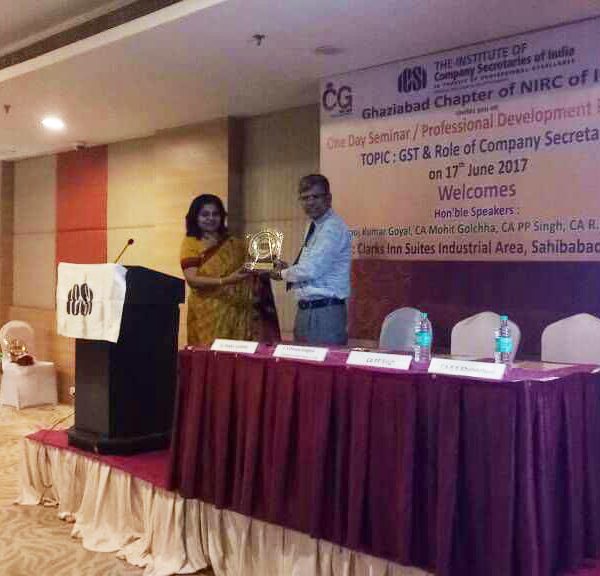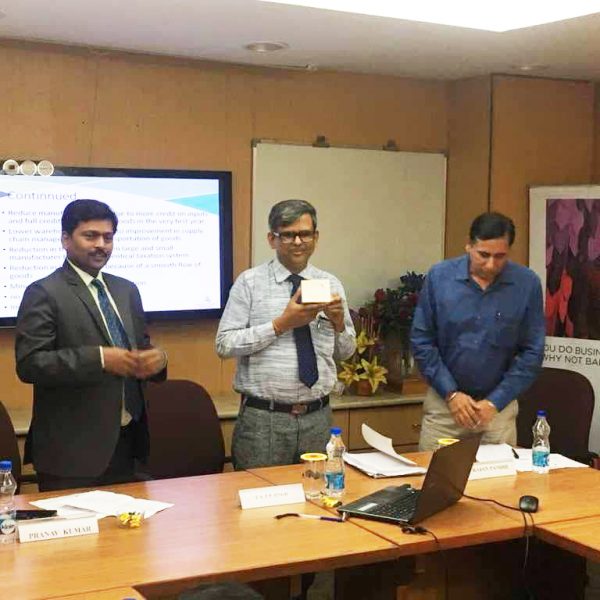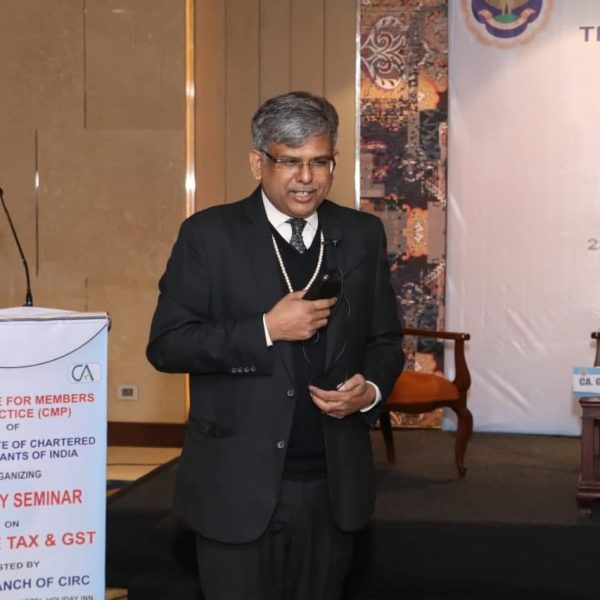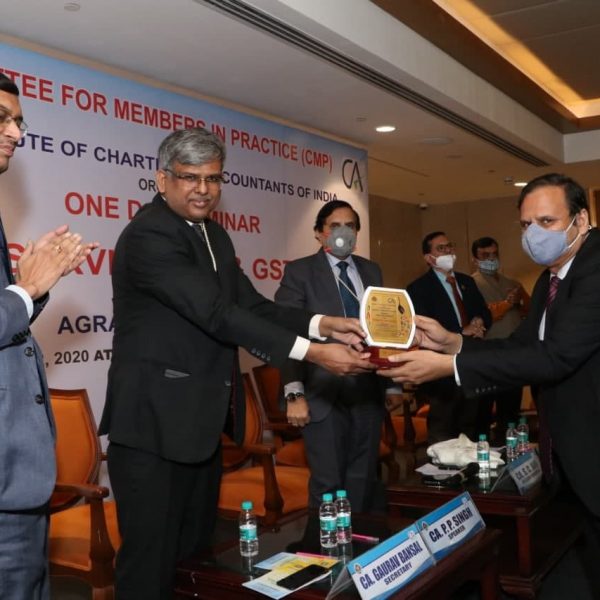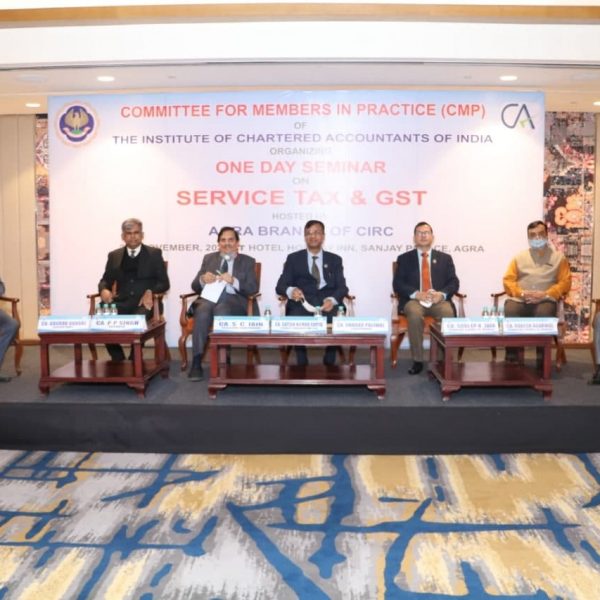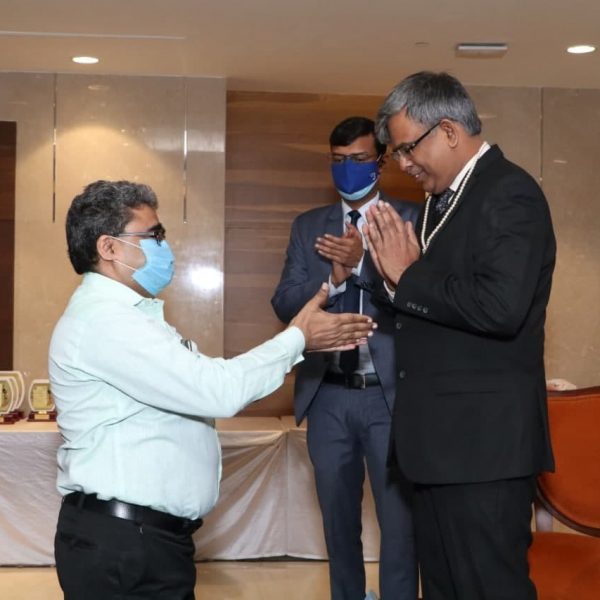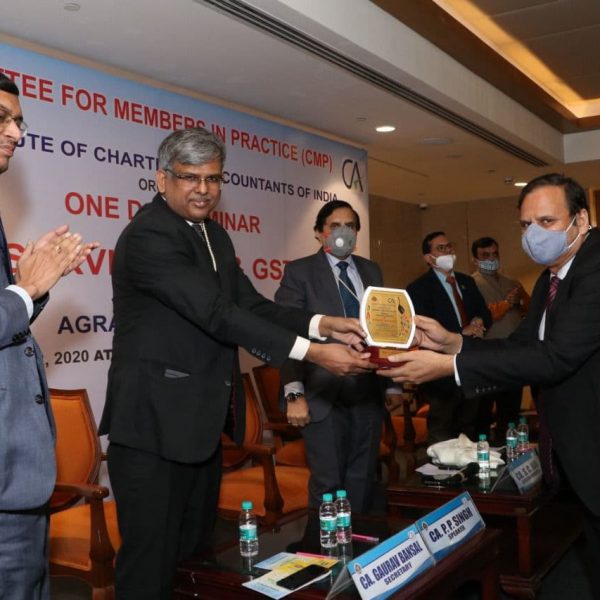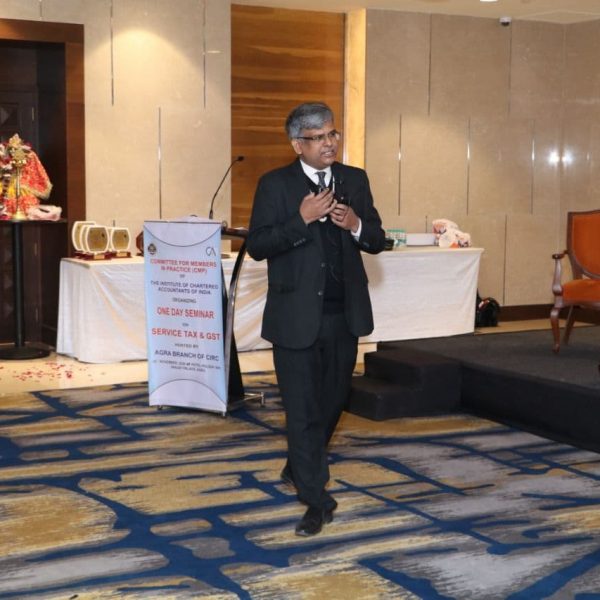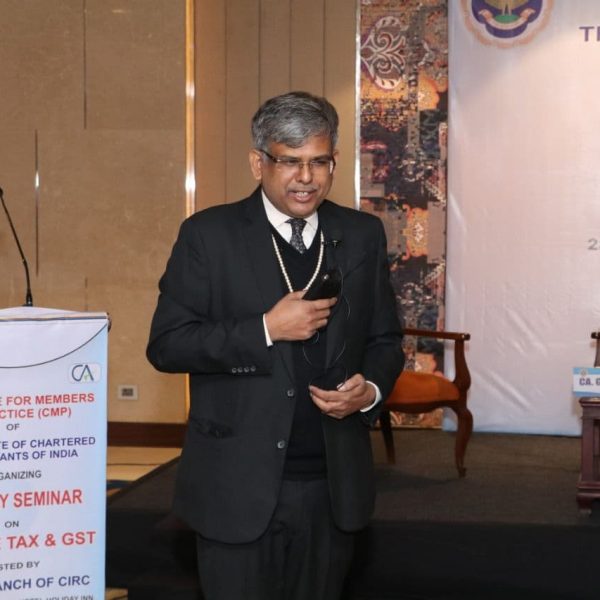Introduction:
There were several existing laws at the time when the Constitution was adopted on January 26, 1950 , some of which were in direct conflict with fundamental rights provided in part -III of the Constitution of India, but later on, there was an amendment in part III in the constitution and now those existing laws are no more inconsistent with fundamental rights, so in order to determine the validity of these existing laws the Supreme Court came up with certain principles such as Doctrine of Eclipse. This doctrine rests on the premise that fundamental rights are prospective. Thus, any pre-Constitutional law which violated fundamental rights would not become void because at the time of the creation of that law, the fundamental rights of the Constitution of India, 1950 was not in existence. In the Bhikaji Narain Dhakras and Ors v. State of Madhya Pradesh (1955) case this legal doctrine was formally pronounced by the Supreme Court judges, This doctrine has no application where laws are made enforceable after adopting the constitution of India.
This doctrine emanates directly from Article 13(1) of the Constitution, which states that
“all laws in force in the territory of India immediately before the commencement of this Constitution in so far as they are inconsistent with the provisions of this Part, i.e. Part III, shall, to the extent of such inconsistency, be void.” [Article 13(1)]
The State shall not make any law which takes away or abridges the rights conferred by this Part III and any law made in contravention of this clause shall, to the extent of the contravention, be void.[Article 13(2)]
Any law made in contravention of Part III of the Constitution would be a stillborn law and such a law is dead from the very beginning. A law, which is stillborn and is dead right from its inception, cannot at all be taken notice of or read for any purpose whatsoever. Rakesh Vij v. Dr. Raminder Pal Singh Sethi, AIR 2005 SC 3593, (2005) 8 SCC 504.
Meaning of “law”: law includes any Ordinance, order, bye-law, rule, regulation, notification, custom or usage having in the territory of India the force of law;
Meaning of “laws in force”: laws in force includes laws passed or made by a Legislature or other competent authority in the territory of India before the commencement of this Constitution and not previously repealed, notwithstanding that any such law or any part thereof may not be then in operation either at all or in particular areas.
Meaning of state: unless the context otherwise requires, “the State” includes the Government and Parliament of India and the Government of state and the Legislature of each of the States, and all local or other authorities within the territory of India or under the control of the Government of India.[article 12]
The framers of the Constitution wanted to leave personal laws outside the ambit of Part III of the Constitution. Therefore, the personal laws do not fall within Article 13(1) at all. State of Bombay v. Narasu Appa Mali, AIR 1952 Bom 84.
Effect of Article 13(1)whether prospective or retrospective: Article 13 of the Constitution has no retrospective effect because the language of this article does not imply any kind of retrospective application, the same could not be assumed and if, therefore, any action was taken before the commencement of the Constitution in pursuance of the provisions of any law which was a valid law at the time when such action was taken, such action cannot be challenged and the law under which such action was taken cannot be questioned as unconstitutional and void on the score of its infringing the fundamental rights enshrined in Part III of the Constitution. Pannalal Binjraj v. Union of India, AIR 1957 SC 397, (1957) SCR 233./ Rabindra Nath Bose v. Union of India, AIR 1970 SC 470, (1970) 2 SCR 697.
Important points of this doctrine:
- It applies only to pre-constitutional laws that were valid at the inception of the constitution, and is not applicable to post-constitutional laws since they are invalid from the very inception because of being inconsistent with Part III; the same was held by the Supreme Court in Deep Chand v. State of Uttar Pradesh which was also upheld in the cases of Mahendra Lal Jain v. State of Uttar Pradesh, State of Gujarat v. Ambica Mills, Sagir Ahmed v. State of Uttar Pradesh and P. L. Mehra v. D. R. Khanna.
- Impugned laws must be inconsistent with fundamental rights provided in part III..
- Pre-constitutional law inconsistent with fundamental rights is not a nullity or void ab initio but only remains unenforceable, i.e., remains in a dormant state.
- Therefore, the impugned law remains hidden behind the fundamental rights and can become operative again if and when the fundamental right which was inconsistent amended and made consistent with the laws itself.
- all past transactions remain valid, i.e., rights and liabilities that were acquired before the Constitution came into being remain valid.
- Such laws also remain applicable to persons to whom fundamental rights are not granted, for example, non-citizens.
The Doctrine of Eclipse has evolved through various Supreme Court rulings after the adoption of the Constitution.
In the Keshav Madhav Menon v. State of Bombay (SC) case, the petitioner was prosecuted under the provisions of the 1931 act, the Indian Press (Emergency Powers) Act, for publishing a pamphlet with no permission. The case was still pending when the Constitution came into force and thus raised questions regarding the prospective and retrospective nature of Article 13(1) and the word “void”. The question before the Court was whether the impugned Act was violative of Article 19(1) (a) ‘’ freedom of speech and expression” and if so whether it should be declared void. The Court answered the first part in the affirmative adding that the Act is void only to the extent of the violation and that the word “void” used in Article 13 does not mean that statutes or provisions shall be repealed altogether.
In the case of the State of Bombay And Ors Vs. F.N Balsara (SC) 1951 AIR 318, the Court declared Section 13(b) of the Bombay Prohibition Act of 1949 as void because it violated Article 19(1) (f) of the Constitution which was related to the right to hold property which was repealed by 44th constitution amendment in 1978 w.e.f 20-06-1979 and new article 300A inserted where under a constitutional right to hold property as ‘’No person shall be deprived of his property save by authority of law”. Further, the petitioner before the high court of Bombay also contended that the above-mentioned statute was violative of Article 19(1)(g) and therefore should be declared void. The Court again held that only the part of the statute that is violative of Part III is inoperative and not the whole Statute. It is important to note that definition of “liquor” under the Bombay Prohibition Act,1949 is assailed to be too wide and it was prohibiting liquor whereas F.N Balsara wants to permit to allow him to exercise his rights to possess, consume and use certain articles i.e whisky, brandy, wine, beer, medicated wine, Eau-de-cologne etc, and to import and export across the Customs frontier and to purchase, possess, consume and use any stock of foreign liquor, eau-de-cologne, lavender water, medicated wines and medicinal preparations containing alcohol.
It is generally agreed, however, that the actual genesis of this doctrine occurred in Bhikaji Narain Dhakras v. State of Madhya Pradesh. In this case, the C. P. and Berar Motor Vehicles Amendment Act of 1947 which amended the Motor Vehicles Act, of 1939. and it was challenged for being violative of Article 19(1) (g) as it restricts the freedom to practice any profession or to carry on any occupation, trade, or business. The Amendment had allowed the Provincial Government to establish a monopoly over the motor transport business in the state, which the petitioners stated was violative of the fundamental rights enshrined in the newly adopted Indian Constitution of 1950 Article 19(1)(g) . This amendment act was a pre-constitutional law. Thus, the Doctrine of Eclipse was applied and the Act’s provisions were made inoperative.
However, in the year 1951, by virtue of the 1st Constitutional Amendment Act, and changes in Article 19(6), the provisions of the impugned Act were no longer inconsistent therewith and the result was that the impugned Act began to operate once again from the date of such an amendment. Article 19(1) (g) was amended and the eclipse was removed, rendering this law enforceable against citizens and non-citizens. According to the Court, “the effect of the amendment was to remove the shadow and to make the impugned Act free from all blemish or infirmity”.
Note: As per article 19(6) “Nothing in article 19(1)(g) shall affect the operation of any existing law in so far as it imposes, or prevent the State from making any law imposing, in the interests of the general public, reasonable restrictions on the exercise of the right conferred by the said sub-clause, and, in particular, nothing in the said sub-clause shall affect the operation of any existing law in so far as it relates to, or prevent the State from making any law relating to,—
(i) the professional or technical qualifications necessary for practicing any profession or carrying on any occupation, trade or business, or
(ii) the carrying on by the State, or by a corporation owned or controlled by the State, of any trade, business, industry or service, whether to the exclusion, complete or partial, of citizens or otherwise.”
Applicability of the doctrine of the eclipse to post-Constitutional laws
While Article 13(1) applies to pre-Constitutional laws, Article 13(2) applies to post-constitutional laws. There is an important distinction between these two clauses that were drawn up in Deep Chand v. State of Uttar Pradesh (1959). Here, it was said that while a pre-constitutional law continues to exist except to the extent of inconsistencies with rights given by Part III of the Indian Constitution, whereas post-constitutional laws in contravention of Part III can’t be made, and if made it will be void ab initio. Thus, from the plain reading of Article 13, the doctrine of eclipse cannot apply to post-Constitutional laws. In Sagir Ahmed v. State of Uttar Pradesh (1954)(SC), it was held by the Supreme Court that any law enacted after the commencement of the Indian Constitution and not protected by article 19(6) while being in violation of Article 19(1)(g) could not be made valid.
Another important case is Mahendra Lai Jaini v State of Uttar Pradesh (1963). In this case, it was authoritatively established that the doctrine of eclipse did not apply to post-Constitutional laws and the latter could not be automatically revived by Constitutional amendments. Thus, the impugned act would become void ab initio if its contravention of any fundamental right as is given in Article 13(2). To give effect to that statute, the Constitution will have to be amended and the former would have to be re-enacted. This principle was reiterated in K.K. Poonacha v. State of Karnataka (2010). The main question, in this case, was whether any act is liable to be declared void on the ground that the same was not reserved for the consideration of the President and did not receive his assent as per the requirement of Article 31(3) of the Constitution. It was held that an act did not become nullified just because it did not receive assent. It remained eclipsed until the irregularity had been removed. In the present scenario, Article 31 related Compulsory acquisition of property was repealed by the Constitution (Forty-fourth Amendment) Act, 1978,w.e.f. 20-6-1979 and thus, the act became revived again.
Change of faith and religion and revival of the cast on again returning to original religion and faith:, in the case of K.P. Manu, Malabar Cements Ltd v. Chairman, Scrutiny Commt (2015), the Court held that when a person is converted to Christianity or some other religion the original caste remains under eclipse and as soon as during his/her lifetime the person is reconverted to the original religion the eclipse disappears and the caste automatically revives.
Further, in the case of UOI & Ors. v. Duli Chand (2010), the court held that a penalty order upon being stayed would remain eclipsed and not dead. When the same stay is vacated, from that moment, the penalty would revive on its account.
Application of the doctrine of an eclipse to the Indian Penal Code
In the case of P. Rathiram v. Union of India (1994), the constitutional validity of Section 309 of the Indian Penal Code, which punishes attempts to commit suicide, was questioned. It was ruled that Section 309 was violative of Article 19 which along with the right to freedom of speech also gives the right to not speak. Further, it was said that the section was violative of Article 21 which by extrapolation also gave the right to not live. This was held to be an invalid finding in Gian Kaur v. State of Punjab (1996). Thus, in essence, the Rathiram case had eclipsed Section 309 with fundamental rights which got removed by the Gian Kaur judgment.
Conclusion
The Doctrine of Eclipse helped the pre-constitutional laws and save them from being wiped out altogether but an eclipse on a portion thereof to the extent of infringing the fundamental rights but as soon as it become consistent the same became operational and valid but the position with regard to post-constitutional laws are different. Post-constitutional laws to the extent infringing fundamental right is void ab initio and no ellipse is created in such cases. This doctrine is effective in harmonizing the pre-constitutional and post-constitutional positions with respect to various laws, such harmonization has ensured the triumph of constitutionalism in every sense of the word.

